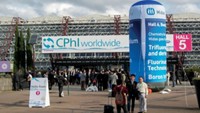Advertisement
Grab your lab coat. Let's get started
Welcome!
Welcome!
Create an account below to get 6 C&EN articles per month, receive newsletters and more - all free.
It seems this is your first time logging in online. Please enter the following information to continue.
As an ACS member you automatically get access to this site. All we need is few more details to create your reading experience.
Not you? Sign in with a different account.
Not you? Sign in with a different account.
ERROR 1
ERROR 1
ERROR 2
ERROR 2
ERROR 2
ERROR 2
ERROR 2
Password and Confirm password must match.
If you have an ACS member number, please enter it here so we can link this account to your membership. (optional)
ERROR 2
ACS values your privacy. By submitting your information, you are gaining access to C&EN and subscribing to our weekly newsletter. We use the information you provide to make your reading experience better, and we will never sell your data to third party members.
Biological Chemistry
Not Just Luck
by Bibiana Campos Seijo
October 19, 2015
| A version of this story appeared in
Volume 93, Issue 41
I write this editorial from Madrid as I’m attending the CPhI pharmaceutical ingredients trade show. This event brings under one roof more than 35,000 attendees and 2,500 exhibitors from more than 150 countries.
CPhI offers plenty of opportunities to share knowledge, learn, and network but, above all, to do business. During the event I heard many in the fine and custom chemicals business emphasize how effective it is to be able to talk to and do business with so many potential and existing partners in one place, making possible in a matter of days what otherwise would have taken weeks of time on the road.
The event started with the Pre-Connect Congress, which focused on how manufacturers outside the U.S. should prepare for an FDA inspection. I’m sure you are all aware that this process can be very stressful and disruptive for a company. Despite this, even when companies get notice that an inspection will happen, they don’t take advantage of it. Basic and obvious things like making sure that employees are well trained to go through the process, that all work areas are clean and tidy, and that all records are appropriately completed need to be prioritized and taken care of.
In addition to a debate that covered industry trends and topics such as biosimilars in emerging markets and the recent trade agreement affecting companies located in the Pacific Rim, CPhI featured a presentation by the European Fine Chemicals Group (EFCG), the representative body from European manufacturers of fine chemicals. They were in a positive mood as the market outlook for advanced pharmaceutical intermediates (APIs) in the European Union is optimistic. EFCG board member Gian Mario Baccalini attributed this to the fact that big pharma companies are returning to Europe to buy APIs, attracted by their quality and reliability. Beyond that, he called for a level regulatory playing field for API manufacturers. He suggested this could take the form of a universal agreement to ensure that companies around the world respect and comply with Good Manufacturing Practices, placing the patient at the center of the regulatory process.
The drive for such measures is that, while European firms continue to invest in R&D, health and safety measures, and highly qualified staff, other markets such as China’s are shutting down facilities because of cases of contamination and overall low quality of their products. In particular, Baccalini mentioned that approximately 800 Chinese facilities were shut down last year alone because of alleged ecological or safety reasons.
Finally, during the Women’s Networking Breakfast, I enjoyed a panel discussion that included Laura Parks of Patheon, Sharon Johnson of Catalent, and Denise Johnston of Nemera and that was expertly moderated by Jolanda Groenhuijzen of MyLanda GmbH. All spoke about the defining people and moments in their lives that influenced where they are now. They pointed to mentors and senior managers—incidentally, for all panelists, these had been men—who were quick to spot their talent and trusted them with more and more responsibilities and larger and larger teams.
Some good advice shared went along the lines of “To grow, you need to be comfortable with being uncomfortable” and “If you are not happy with a situation, the first thing you need to do is look in the mirror.” There was agreement that networking is extremely valuable in terms of building a reputation and a skill set, so be generous with your network and ready to help others. It’s difficult for people to promote you if they don’t know you on a personal level.
The panel also spoke about how women don’t always trust themselves and, for example, tend to overprepare for meetings and presentations. They suggested women shouldn’t feel like they have to have an answer for every possible question. In relation to this lack of trust, it was discussed that women often attribute their success to luck or opportunity. All attendees identified with the comment by one of the speakers: “The harder I work, the luckier I get.” Yes, it’s not just luck.
Views expressed on this page are those of the author and not necessarily those of ACS.





Join the conversation
Contact the reporter
Submit a Letter to the Editor for publication
Engage with us on Twitter